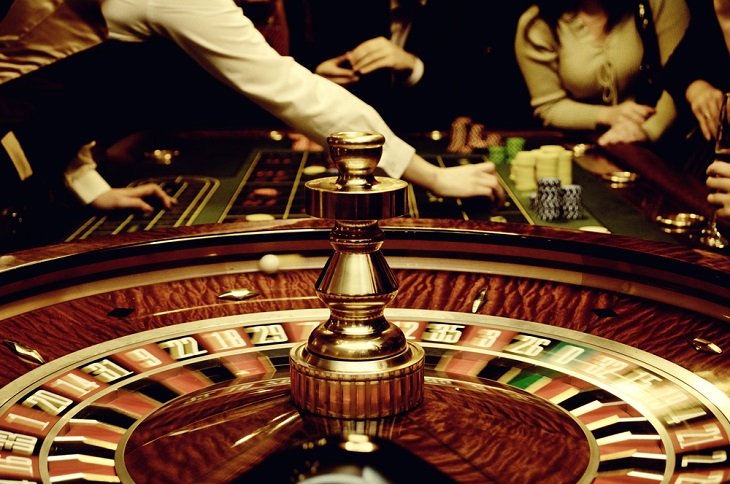It’s 1:00 a.m., Las Vegas time, and you’ve been hammering at the casino all day and all night. Blackjacks drop as if you have control over the cards. Instantly seven-ing out at the craps table is something that happens to other people. You’re not controlling the dice but you may as well be. And when you pump $20 worth of bets onto the roulette table, just for the heck of it, magically, you triple your investment. This has been a charmed stretch of gambling. Pockets bulge with black and purple chips. It seems as if things can’t get any better. Then you are rewarded with an upgrade from room to suite, a couple of free tickets to the next Floyd Mayweather fight, comped dinner at the steak-house, and, if you go at it hard enough, reimbursement on your airfare.
Beating the casino at its own games is one thing. Getting free stuff for your trouble is something else altogether – and all the sweeter – whether you know how to count cards or not. These freebies are called “comps” and are rewards for your wagering. Comps are ways for a casino to make you a loyal customer and to keep you coming back – and, the casino hopes, maintain you as a losing player. But, win or lose at the tables, after obtaining a player’s card (a plastic identification card that lets the casino know who you are, it is presented to the dealer whenever you sit down to play and allows your gaming action to be tracked) and aligning yourself with a host, there are things you can do to leverage your situation and get even more free stuff. And you don’t need to know a thing about game theory or esoteric gambling strategies in order to do it.
As explained by Max Rubin, author of the book Comp City and an expert on extracting player rewards from casinos, perception is everything. “Your first bet and your last bet are your most important bets,” he says. “Make sure, when you sit down and begin wagering, it’s at the top of your betting range. Be sure to announce it so that the pit-boss hears you. They open your rating on that first bet and you want it to be a good number. Also: Buy in for a little extra. Even if you have no intention of losing all the money, it looks good for you to appear to be somebody who will. Same thing with your last bet. Dealers and their bosses have only a hand or two as reference points for your average bets.”
Now that you’re set up and ready to reap the rewards for your love of gambling, get cognizant of the different kinds of comps offered by casinos. Hard comps are the ones that they have to pay real money for – airline reimbursements, fight tickets, cash cards that you can use for shopping. Soft comps don’t necessarily cost the casino a whole lot. These are free rooms, meals at the buffet, dinner in the coffee shop, free entry to the nightclub. “Hosts are likelier to cough up for the soft comps,” says a seasoned player who has asked not to be identified. “But those are great. You can gamble relatively modestly, play basic strategy blackjack, and enjoy free trips to Vegas. Yes, you may not get an airfare reimbursement, but who cares? Fly into town on your own and enjoy enough free stuff that the trip won’t cost you any more than that.”
Once you start establishing yourself as a serious player, a Las Vegas jaunt can result in your being able to win money without actually putting any money at risk. Those come about via so-called free-rolls. These are invite only events in which you compete in tournaments – blackjack, craps, poker, even slot machines – against other gamblers and just might wind up with a windfall of prize money. “Free-roll tournaments have tremendous value,” says Rubin. “You can have $2,000 in expected-value coming your way. They’re fun to play, the fields can be soft, and you get a free room.” In order to capitalize on those soft fields, it’s worthwhile to strategize ahead of time – most people play these things by the seats of their pants but you shouldn’t. Consult Stanford Wong’s Tournament Strategy (it was written 22 years ago but still holds up extremely well) and it will put you a few steps ahead of the average player.
Another gambit is to take advantage of the rebate game. This is free-money for players who gamble high enough. Basically, it’s a deal in which the casino reimburses you a percentage of your losses. Let’s say, for example, you have an arrangement where you get 10-percent of your losses, up to $100,000, rebated. That means that if you lose $100,000 you give the casino only $90K because you receive back $10,000 via the rebate plan. “Most people think that’s not such a great deal,” says Steve Cyr, one of the sharpest hosts in Las Vegas. “But there are some smart guys who really know how to play it.”

To begin with, he explains, the rebate periods generally run 24 hours. The smart players take advantage of that. “I have guys who will come in, lose their $100,000, get back $10,000 and leave,” he says. “Then they come back the next day and win $100,000. They get paid by check, take it to another casino, have it cashed and take advantage of the rebate deal that has been established there. There’s no worse feeling than getting a call from a competing casino, where the host wants to know if he can cash your check.”
Bad for Cyr but good for you – if you want to keep playing the rebate game. Cyr points out that you should gamble at casinos where your level of action will be appreciated. “Lose $5,000 at the Orleans [a less than new casino off of the Las Vegas Strip] and you’re somebody,” he says. “Lose the same thing on the strip, and it doesn’t really raise a lot of eyebrows. Vegas has gotten a little arrogant – to the point that we don’t even rate you unless you’re betting $25 or $50 per hand and playing for at least three hours per day.” Roughly speaking, he says, you can expect to get comped for 10-percent of what you lose or 30-percent of your mathematically expected loss.

One way to enhance your treatment is to put your gambling bankroll on deposit. Cyr likes to know how much he stands to win. That said, he cautions that you shouldn’t get too carried away with snagging comps. Always keep in mind how much you can lose and what the comps are worth. “People like to brag about getting comped,” Cyr muses. “A guy tells me that he lost $10,000 and got comped. I tell him, ‘I hope you did.’”


